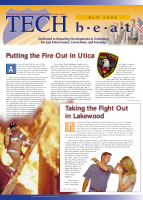Response to violence
Student Violence Directed Against Teachers: Victimized Teachers' Reports to School Officials and Satisfaction With School Responses
Child Custody Outcomes in Cases Involving Parental Alienation and Abuse Allegations
A Comprehensive Longitudinal Study of School Violence and the School-to-Prison Pipeline: Root Causes and Consequences of and Implications for Restorative Justice Approaches
Childhood Maltreatment and Anhedonic Symptoms: Test of a Dual-risk Model in Emerging Adults
NIJ-Funded Research on Mass Shootings to Advance Evidence-Based Policy and Practice
Mass public shootings continue to threaten communities in the United States, yet research on this criminal phenomenon is limited. In this full thematic panel, renowned experts will present a series of research projects summarizing NIJ-funded research projects’ newest findings on public mass shootings. The discussion will focus on NIJ’s investment to address the phenomenon of mass shootings through innovative study approaches to advance our understanding of mass shootings and inform prevention efforts. The implications of this research to criminal justice will also be discussed.
See the YouTube Terms of Service and Google Privacy Policy
Nebraska Indian Community College Tribal-Researcher Collaboration
Using Big Data to Study the Impact of Mass Violence: Opportunities for the Traumatic Stress Field
Cases Associated with Violence in the National Missing and Unidentified Persons System (NamUs): The Examination of Circumstances & Characteristics Project
Tip Lines - Roundtable Discussion, NIJ Virtual Conference on School Safety
On February 16-18, 2021, the National Institute of Justice hosted the Virtual Conference on School Safety: Bridging Research to Practice to Safeguard Our Schools. This video presents a roundtable discussion from the conference.
See the YouTube Terms of Service and Google Privacy Policy
Preparing for and Responding to Threats and Violence - Breakout Session, NIJ Virtual Conference on School Safety
On February 16-18, 2021, the National Institute of Justice hosted the Virtual Conference on School Safety: Bridging Research to Practice to Safeguard Our Schools. This video includes the following presentations:
See the YouTube Terms of Service and Google Privacy Policy
School Transitions and Student Responses to Victimization - Breakout Session, NIJ Virtual Conference on School Safety
On February 16-18, 2021, the National Institute of Justice hosted the Virtual Conference on School Safety: Bridging Research to Practice to Safeguard Our Schools. This video includes the following presentations:
See the YouTube Terms of Service and Google Privacy Policy
School Safety: A Focus on Teachers and Administrators - Breakout Session, NIJ Virtual Conference on School Safety
On February 16-18, 2021, the National Institute of Justice hosted the Virtual Conference on School Safety: Bridging Research to Practice to Safeguard Our Schools. This video includes the following presentations:
See the YouTube Terms of Service and Google Privacy Policy




